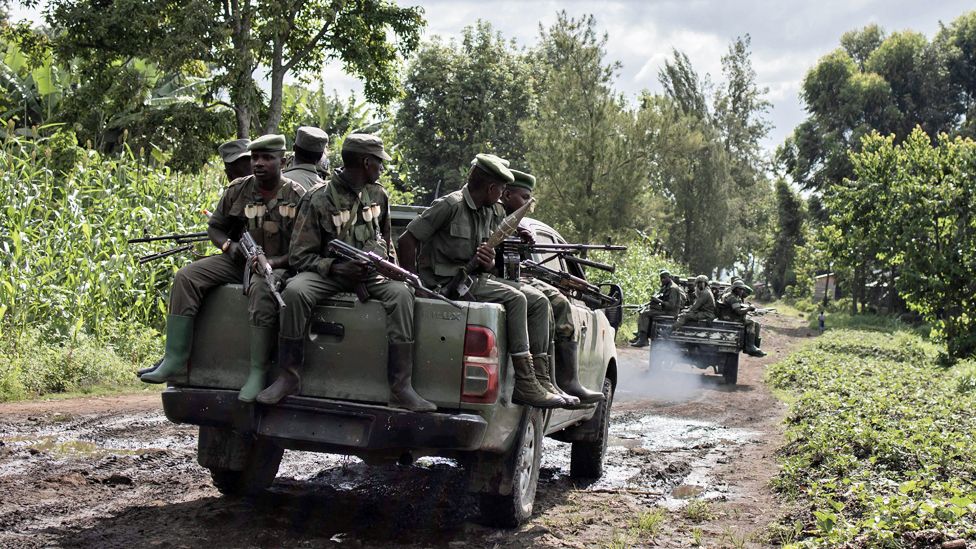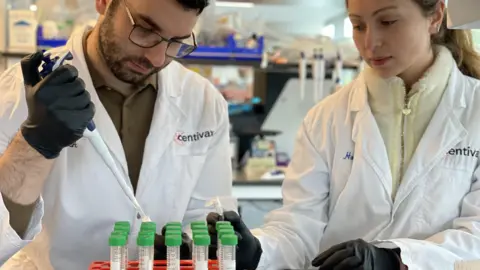Foreign News
Angola to deploy troops to DR Congo after failed truce

BBC reported that Angola is to send a military unit to eastern Democratic Republic of Congo, days after a truce it brokered failed to end fighting.
Both sides in the conflict – the M23 rebels and government troops – have accused each other of breaking the ceasefire that began on Tuesday.
An East African force was also recently deployed to the area, which is rich in minerals and has dozens of militias. The UN says the conflict forced 300,000 people from their homes last month. This happened in North-Kivu province, which borders Rwanda and Uganda, and is a fertile and mountainous area long plundered by rival groups.
There is increasing concern about the humanitarian crisis caused by the fighting, which was still ongoing on Friday. The European Union has just started an operation to fly in aid to the regional capital, Goma, saying humanitarian agencies have become overwhelmed. A statement from the Angolan president’s office said the soldiers would be deployed to help secure areas that have been held by the M23 rebel group and to protect ceasefire monitors.
Kenyan soldiers, who are part of the East African Community Regional Force, have deployed to these areas too. The rebels, who are widely reported to be backed by Rwanda, had just hours earlier said they would withdraw from several captured villages. The Congolese government will welcome the arrival of Angolan troops to help in the fight against the rebels.
But there is a danger of this becoming a wider international conflict.
Foreign News
Australia PM Albanese makes stunning comeback with landslide win

Labor’s Anthony Albanese has defied the so-called “incumbency curse” to be re-elected Australia’s prime minister in a landslide win.
Official vote counting won’t finish for days, but Albanese’s centre-left government will dramatically increase its majority after the conservative Liberal-National coalition suffered a thumping defeat nationwide.
“Today, the Australian people have voted for Australian values: for fairness, aspiration and opportunity for all; for the strength to show courage in adversity and kindness to those in need,” Albanese said.
Coalition leader Peter Dutton, who lost his own seat of 24 years, said he accepted “full responsibility” for his party’s loss and apologised to his MPs.
Following the result, UK Prime Minister Sir Keir Starmer and US Secretary of State Marco Rubio both said they looked forward to deepening their bilateral relationships with Australia.
Labor has seen swings towards them right across the country – a rare feat for a second-term government in Australia – and Albanese becomes the first prime minister to win back-to-back elections in over 20 years.
The party’s success has also tempered a trend of voters abandoning the two major parties, which was the big story of the last election in 2022.
Labor is on track to finish with 85 seats, the Coalition about 40, and the Greens Party with one or two, according to projections by the Australian Broadcasting Corporation (ABC). Other minor parties and independents are ahead in nine seats.
That represents an increase of nine for Labor and a significant drop in support for the Greens. However most “teal” independents have been returned in their more conservative, inner-city electorates.
It’s a remarkable turnaround from the start of the year, when polling put Albanese’s popularity at record lows after three years of global economic pain, tense national debate, and growing government dissatisfaction.
The five-week campaign was dominated by cost-of-living concerns – particularly the affordability of healthcare and housing – with issues like energy and climate change, international relations, and migration also rearing their heads.
Albanese touched on most of them on Saturday night. He reiterated his promises to make healthcare – most critically GP appointments – more affordable, put buying a house in reach for more Australians, and do more to address climate change and protect the environment.
Notably, he also vowed to advance reconciliation for First Nations people: “We will be a stronger nation when we Close the Gap between Indigenous and non-Indigenous Australians.”
It’s a veiled referenced to the biggest moment of Albanese’s tenure, the failed Voice referendum of October 2023, which sought to recognise Aboriginal and Torres Strait Islander people in the constitution, and simultaneously establish a parliamentary advisory body for them.
Australia remains the only Commonwealth country to have never signed a treaty with its Indigenous people.
The Voice was one of Albanese’s most defining policies, and his most striking setback – it was overwhelmingly rejected after months of often toxic and divisive national debate.
Indigenous Australians have told the BBC they feel like they’ve been forgotten by policymakers since.
The prime minister also found difficulty trying to walk a middle path on the Israel-Gaza war, raised eyebrows after buying a multi million dollar beach pad as voters grappled with a housing crisis and, like other leaders globally, grappled with tough economic conditions.
With tanking poll numbers, Albanese was broadly seen as the underdog coming into the election, and was poised to be the next victim of the “incumbency curse” – a term to explain a global trend where struggling constituents were turfing out governments after a single term.
Dutton, on the other hand, looked like he was writing a great political comeback – he was on the edge of bringing his party from its worst loss in 70 years back into office in a single term.
It has been almost a century since a first-term government has failed to win re-election, but as Australian National University Emeritus Professor John Warhurst said: “Dutton entered the campaign [year] in front. It was his to lose.”
Instead tonight Dutton has overseen a party loss so emphatic he has lost his own electorate of Dickson, to Labor’s Ali France.

“I love this country and have fought hard for it,” he told supporters in Brisbane, conceding defeat.
“We have been defined by our opponents in this election which is not a true story of who we are, but we will rebuild from here and we will do that because we know our values, we know our beliefs, and we will always stick to them.”
His campaign was marred by unforced errors: including a series of policy backflips which caused confusion, awkward mistakes on important issues like cost of living and, perhaps most memorably, accidentally booting an AFL ball into a cameraman’s head.
[BBC]
Foreign News
‘Unparalleled’ snake antivenom made from man bitten 200 times

The blood of a US man who deliberately injected himself with snake venom for nearly two decades has led to an “unparalleled” antivenom, say scientists.
Antibodies found in Tim Friede’s blood have been shown to protect against fatal doses from a wide range of species in animal tests.
Current therapies have to match the specific species of venomous snake anyone has been bitten by.
But Mr Friede’s 18-year mission could be a significant step in finding a universal antivenom against all snakebites – which kill up to 14,000 people a year and leave three times as many needing amputations or facing permanent disability.
In total, Mr Friede has endured more than 200 bites and more than 700 injections of venom he prepared from some of the world’s deadliest snakes, including multiple species of mambas, cobras, taipans and kraits.
He initially wanted to build up his immunity to protect himself when handling snakes, documenting his exploits on YouTube.
But the former truck mechanic said that he had “completely screwed up” early on when two cobra bites in quick succession left him in a coma.
“I didn’t want to die. I didn’t want to lose a finger. I didn’t want to miss work,” he told the BBC.
Mr Friede’s motivation was to develop better therapies for the rest of the world, explaining: “It just became a lifestyle and I just kept pushing and pushing and pushing as hard as I could push – for the people who are 8,000 miles away from me who die from snakebite”.
Antivenom is currently made by injecting small doses of snake venom into animals, such as horses. Their immune system fights the venom by producing antibodies and these are harvested to be used as a therapy.
But venom and antivenom have to be closely matched because the toxins in a venomous bite vary from one species to another.
There is even wide variety within the same species – antivenom made from snakes in India is less effective against the same species in Sri Lanka.
A team of researchers began searching for a type of immune defence called broadly neutralising antibodies. Instead of targeting the part of a toxin that makes it unique, they target the parts that are common to entire classes of toxin.
That’s when Dr Jacob Glanville, chief executive of biotech company Centivax, came across Tim Friede.
“Immediately I was like ‘if anybody in the world has developed these broadly neutralising antibodies, it’s going to be him’ and so I reached out,” he said.
“The first call, I was like ‘this might be awkward, but I’d love to get my hands on some of your blood’.”
Mr Friede agreed and the work was given ethical approval because the study would only take blood, rather than giving him more venom.

The research focused on elapids – one of the two families of venomous snakes – such as coral snakes, mambas, cobras, taipans and kraits.
Elapids primarily use neurotoxins in their venom, which paralyses their victim and is fatal when it stops the muscles needed to breathe.
Researchers picked 19 elapids identified by the World Health Organization as being among the deadliest snakes on the planet. They then began scouring Mr Friede’s blood for protective defences.
Their work, detailed in the journal Cell, identified two broadly neutralising antibodies that could target two classes of neurotoxin. They added in a drug that targets a third to make their antivenom cocktail.
In experiments on mice, the cocktail meant the animals survived fatal doses from 13 of the 19 species of venomous snake. They had partial protection against the remaining six.
This is “unparalleled” breadth of protection, according to Dr Glanville, who said it “likely covers a whole bunch of elapids for which there is no current antivenom”.

The team is trying to refine the antibodies further and see if adding a fourth component could lead to total protection against elapid snake venom.
The other class of snake – the vipers – rely more on haemotoxins, which attack the blood, rather than neurotoxins. In total there are around a dozen broad classes of toxin in snake venom, which also includes cytotoxins that directly kill cells.
“I think in the next 10 or 15 years we’ll have something effective against each one of those toxin classes,” said Prof Peter Kwong, one of the researchers at Columbia University.
And the hunt continues inside Mr Friede’s blood samples.
“Tim’s antibodies are really quite extraordinary – he taught his immune system to get this very, very broad recognition,” said Prof Kwong.
The ultimate hope is to have either a single antivenom that can do everything, or one injection for elapids and one for vipers.
Prof Nick Casewell, who is the head of the centre for snakebite research and interventions at the Liverpool School of Tropical Medicine, said the breadth of protection reported was “certainly novel” and provided “a strong piece of evidence” that this was a feasible approach.
“There is no doubt that this work moves the field forwards in an exciting direction.”
But he cautioned there was “much work to do” and that the antivenom still needed extensive testing before it could be used in people.
But for Mr Friede, reaching this stage “makes me feel good”.
“I’m doing something good for humanity and that was very important to me. I’m proud of it. It’s pretty cool.”
[BBC]
Foreign News
Two dead after Peruvian navy ship hits oil platform in Amazon River

A Peruvian navy vessel has collided with an oil platform in the Amazon River, killing at least two people and leaving one missing.
The collision happened in the early hours of Friday morning at the junction of the Napo and Amazon rivers, causing “severe damage”, Peru’s defence ministry said.
Thirty crew members were rescued from the vessel, with specialised diving teams and helicopters deployed as part of the search operation, the statement added.
It is not clear if the platform, owned by Anglo-French company Perenco, was damaged or whether oil has leaked into the river. The Peruvian defence ministry said it was investigating the cause of the collision.
“Peru’s Navy deeply regrets the irreparable loss of our crew members,” the defence ministry said, adding that it would provide assistance to their loved ones.
The ministry said the vessel, called Ucayali, hit the platform while it was navigating near the mouth of the Napo River in northern Peru. BBC News has approached Perenco for comment.
There are hundreds of gas and oil blocks in areas of Peru, Brazil, Colombia and Ecuador covered by the Amazon rainforest. Spills in the region have had a devastating impact on indigenous communities and local wildlife.
In 2022, the Peruvian government said that almost 12,000 barels of oil had leaked into the sea after a tanker was hit by waves linked to a volcanic eruption on Tonga.
[BBC]
-

 News7 days ago
News7 days agoLankan ‘snow-white’ monkeys become a magnet for tourists
-

 News7 days ago
News7 days agoNew Lankan HC to Australia assumes duties
-

 Business7 days ago
Business7 days agoPick My Pet wins Best Pet Boarding and Grooming Facilitator award
-

 News5 days ago
News5 days agoJapan-funded anti-corruption project launched again
-

 Features7 days ago
Features7 days agoKing Donald and the executive presidency
-

 Business7 days ago
Business7 days agoACHE Honoured as best institute for American-standard education
-

 News5 days ago
News5 days agoSethmi Premadasa youngest Sri Lankan to perform at world-renowned Musikverein in Vienna
-

 Business5 days ago
Business5 days agoNational Savings Bank appoints Ajith Akmeemana,Chief Financial Officer












